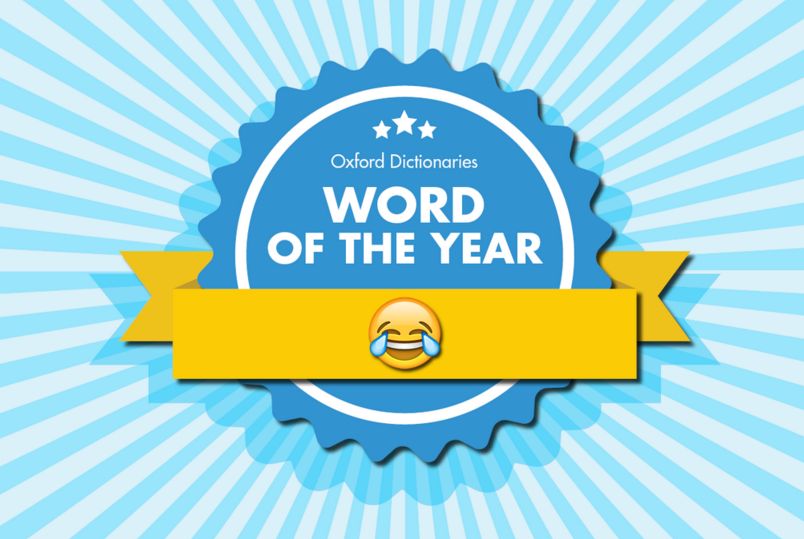Oxford Dictionaries has named their 2015 Word of the Year. And for the first time ever, it’s not a word. It’s an emoji:


The “Face with Tears of Joy,” as it’s officially called, is reportedly the most popular emoji (Oxford Dictionaries defines the emoji as “a small digital image or icon used to express an idea or emotion in electronic communication”).
It made up 20 per cent of all the emojis used in the UK this year, and 17 per cent of those in the US, according to emoji keyboard-maker SwiftKey.
READ MORE: Canadians lead the world in using the smiling poop emoji
“We believe it embodies a particular place the culture is at at this moment in time,” said Oxford Dictionaries president Casper Grathwohl in a YouTube interview.
Grathwohl added that “emojis have been a staple of teen texting culture for years. But it was really over the last 12 months that we saw emoji culture explode in to the mainstream.”
READ MORE: Emojis the modern day answer to cave painting: linguistics expert
Some, like Hillary Clinton, have embraced the emoji way of expression.
But many others seem to fear it signals our cultural demise.
Linguistics professors Sali Tagliamonte says all the online outrage is “just silly.” She thinks that Oxford Dictionaries is simply “capturing a viable trend.”
“People are always freaking out that language is changing. It sure is, but that is its nature!”
READ MORE: ‘The adaptation of real life conversation’: what new emojis mean for human language
Social media strategist Brent Stirling with Ryerson University’s business incubator, DMZ, sympathizes with those who question how an emoji can be “word of the year.” But he doesn’t think it means the end of the English language.
“By selecting an emoji as the word of the year, Oxford is just highlighting the cultural shift to online communications that we use everyday,” he said.
“As more and more communication and interaction between people turns digital, emojis fill the gap that text cannot. This allows people to communicate their tone, body language and facial expressions that would normally accompany an in-person conversation.”
>READ MORE: New emojis unveiled as odd ‘language’ keeps evolving
Emojis – a portmanteau of Japanese words for “picture” and “character” – were created by a Japanese firm in the late 1990s. There are now more than 1,000 of them in existence.
The “Face with Tears of Joy” emoji beat out the following contenders for “word of the year”:
ad blocker, noun: A piece of software designed to prevent advertisements from appearing on a web page.
Brexit, noun: A term for the potential or hypothetical departure of the United Kingdom from the European Union, from British + exit.
Dark Web, noun: The part of the World Wide Web that is only accessible by means of special software, allowing users and website operators to remain anonymous or untraceable.
on fleek, adjectival phrase: Extremely good, attractive, or stylish.
lumbersexual, noun: A young urban man who cultivates an appearance and style of dress (typified by a beard and check shirt) suggestive of a rugged outdoor lifestyle.
refugee, noun: A person who has been forced to leave their country in order to escape war, persecution, or natural disaster.
sharing economy, noun: An economic system in which assets or services are shared between private individuals, either for free or for a fee, typically by means of the Internet.
they (singular), pronoun: Used to refer to a person of unspecified sex.
Last year Oxford Dictionaries went with “vape” for its “word of the year.” In 2013, “selfie” took top spot.
With file from Steve Morales, Global News



Comments